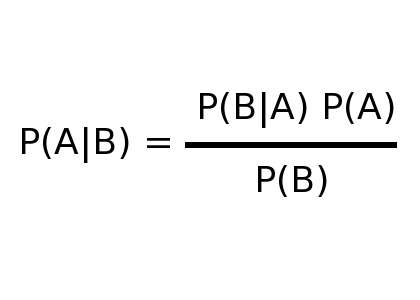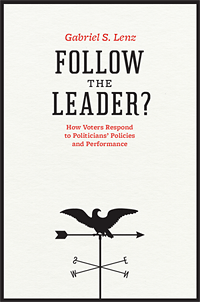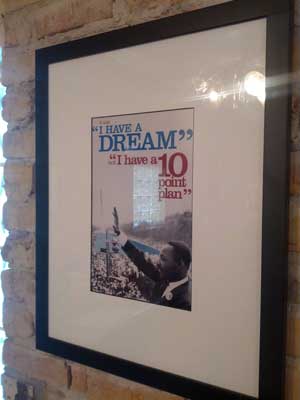
by Alex Patton | Dec 2, 2013 | Political Consulting

Analytical Thinking & Presentation for Intelligence Producers
Over the Thanksgiving weekend, during a Tofurkey induced political-nerd Internet session, I came across a copy of the CIA’s Training Manual & Handbook written for their analysts entitled: Analytic Thinking & Presentation for Intelligence Producers. Analysis Training Handbook.
The handbook was originally published in 2000, and I was enthralled with the document. After all, in a sense, political consultants are producers of Intelligence. It just happens to be political consultants trade in mostly open-source intelligence.
At first, I felt I was being respectfully subservient. I was going to go behind the door and learn the secrets to being a great CIA analyst.
However, as I read the document, it became apparent that what I had stumbled upon was the government’s version of Strunk & White.
It is a good read, but you will learn no secrets, only helpful hints such as:
- The importance of a title
- How to gist your reading (actually a very helpful section)
- The need for focus and clarity
- “If you can’t summarize your bottom line in one sentence, you haven’t done your analysis.”
- One idea – One Paragraph
- The inverted Pyramid writing style, i.e. begin with the core assumption.
- The importance of precise language (no jargon, no abbreviations, allow no possible misunderstandings)
Again, there is nothing earth shattering, but it is an interesting read.
Developing Analytical Objectivity
The part that I found most interesting is the section entitled “Developing Analytical Objectivity.”
In a world filled with talk radio and infotainment, it is an important point to raise awareness about.
We have talked extensively about the cognitive nature of our brains and some of the fallacies and tricks our brains play on us – especially in the political arena.
This warning given to some of our country’s brightest thinkers acts as a reminder that if the smartest person in the room must protect against biases, so must we.
While there are no state secrets in the document, we all can use a refresher on how to write and think more clearly. I strongly urge you take a quick read.
Read and enjoy for yourself.

Download the Study

by Alex Patton | Nov 21, 2013 | Ozean Media

Ozean announces Political Library
Announcing the opening of Ozean’s central repository & political library
We have heard your request, and we are making some small changes to our website.
As you may know, we love the science of politics. We are true political nerds, and we embrace that aspect of our personalities.
Many of our blog posts are driven by what political studies, political research, or political books we are currently reading. Some are even driven by Ozean Media’s original research.
Over the past year, we have been asked repeatedly to create a central library of our research.
You asked for one place for all political research, and we listened.
Today, we announce the opening of the official Ozean central repository of all political information & political library. 
On one convenient page, you will find Ozean’s Political Case Studies, Ozean’s Original Political Research, and links to any political science studies that Ozean discusses or cites in our political blog.
BTW, did you know Ozean’s blog was listed by Campaigns and Elections Magazine as a must read? You do now!
The political libray is a work in progress, and Ozean hopes you will bring any errors to our attention by contacting Ozean.
Enjoy the homework.
No need to thank us, you’re welcome!
Link to: Ozean’s political library

by Alex Patton | Nov 20, 2013 | Political Consulting

Alex Patton: Guest Lecturer of the Year
It was my absolute pleasure to be a guest lecturer at the University of Florida’s graduate political science program.
I was extremely impressed with the engagement and intellect of the students.
My only concern is 90% of the students in the graduate program self identified as Democrats.
Come on fellow Republicans, don’t fear SPSS. We need you!
As you can from the photo above, I was aiming for Guest Lecturer of the Year!
Knowing my fellow Gators, I believe the probability of me winning has increased dramatically……just saying!

by Alex Patton | Oct 28, 2013 | Political Consulting
I have become that guy. You know THAT guy that likes to discuss politics on Facebook. I’m sorry, I just can’t help myself. I’m curious and I want to try and figure put how people think.
What I am finding is that people are fighting and not arguing, in the classical definition of the word, which is to seek understanding.
As a political professional, I think our primary mission is to discover HOW people make a decision – particularly political decisions – so that we may figure out HOW to effect these decisions.
I got myself into a heated discussion because I questioned a fellow conservative on their black/white thinking. I am constantly aware of people expressing an opinion as 100% true with no room for discussion.
This was my final comment that I placed on Facebook when trying to exit the conversation:
Here is all that I really know and it is something that will put me at odds with a lot of people : I reject absolutism. I am almost envious of those who know an answer to any question with 100% certainty. I think the world is easier for them. Unfortunately, my brain does not work that way. Maybe it is the political scientist in me that sees all “facts” “laws” etc must be submitted for testing and attempted to be disproved. I can’t out of hand reject anyone’s thoughts as non-virtuous. I also feel that a lot of people are not arguing to understand, but rather are just fighting. Just because I question something does not make me a traitor, a RINO, a liberal, a moderate or any other label you may wish to place on me. What I am is curious, a sinner, and as I age more willing to question my own brain and thoughts. Again, my brain is messy, Im trying to find my own way, and I envy those who are 100% certain in their views. PS You must have missed my comment on Grayson being no better than those he disparages.
Political professionals MUST raise their eyes from the horizon and cross-study psychology, economics, decision making theory, neuroscience, statistics, and really anything that may give us an edge.
In my years of attempting to get better, I have come to strongly believe in two things:
In fact if you do much reading at all into predictions you find people are just plain awful at them – and experts are the worse.
Early in my career, I found myself making such nonsense statements as:
- “That person doesn’t stand a chance of winning!”
- “She is going to lose!”
- “If that person runs, they will KILL the field!”
Great for talk radio and when talking to a homogeneous group! However, I dare you track such statements and measure the accuracy of them.
The wisdom of predictions
Experience and wisdom has taught me a valuable lesson – often by beating me over the head – but the lesson is this:
I no longer make binary predictions. They are for fools. I now watch my language very closely so that I make more accurate statements.
- “That person has a very low chance of winning!”
- “She has an extremely high chance of losing the election!”
- “If that person runs, in my opinion, they have an extremely high probability of victory!”
This is more than just a re-framing statement. It actually leads to a much better discussion and ultimately a much better understanding.
When I say “I think they have a low probability of winning”, we move the discussion from agreement or disagreement with me to a discussion of my assumptions and basis for my conclusion.
The other thing that happens is we leave open the ability to revise the prediction – when and if the underlying assumptions change.
Overall, we now have a much deeper understanding of the situation.
“When my information changes, I alter my conclusions. What do you do, sir?”
Some of you may recognize it as Bayes statistics, and it is exactly.
Conclusion
Discovering and studying this way of thinking about problems had has an impactful influence in many areas of my life. 
When you start to think in probabilities based upon assumptions that may change over time, you become keenly aware of your mental limitations.
You also become astutely aware there are very few predictions that you can make with a 100% probability. You simply must allow for a probability of a Black Swan – no matter how small.
Next time someone boldly states a claim that “X is true”, ask them how certain they are of “X claim.” The discussion will change.
When you start adjusting your thinking to a Bayes’ model, you immediately become a little more humble and in the end more accurate.
And there is a 100% chance that I am 100% correct about this.
Additional Reading:
Hierarchical Bayes models free researchers from computational constraints and allow researchers and practitioners to develop more realistic models of buyer behavior and decision making.
(Yes, it is dense with math, but it is an interesting look at how this applies in Marketing.)
Fine, here is the Wikipedia page on Bayes.

by Alex Patton | Sep 24, 2013 | Political Consulting, Political Research
Just finished a pretty dense read by Gabriel Lenz, Follow the Leader: How Voters Respond to Politicians’ Policies and Performance, and yes, it does include math.
However, it is a very interesting read and I strongly suggest you take a gander.
The main question I (the author) set out to answer is, which view of democracy best reflects modern reality? Do citizens lead politicians on policy? Do they judge them on performance-related characteristics? Or do they merely follow politicians?
The author’s conclusion(s)?
Voters for the most part focus on what the author calls performance-related characteristics, such as previous success in office and trustworthiness.
The voter thinks: “This politician has the personal traits I think a politician should have. This politician has done a good job in previous political positions.” In this view, citizens don’t directly lead politicians on policy, but they do lead on performance, throwing out incompetent or corrupt incumbents.
Most of the time voters apparently failed to judge politicians on policy—at least during campaigns.
At times, however, public policy did interest the masses. In these unusual cases, politicians appeared to follow voters.
Incumbents facing widespread public concern on issues that disadvantaged them responded strategically, adopting policy stances that mollified the public,
Instead of finding that policy issues influenced votes, the reverse was usually found : voters first decided to support a particular politician, then adopted that politician’s policy views.
WOW! When you put these findings together and take in the possibility that the author’s hypotheses are true, it has wide spread implications for how we run campaigns.
No, this is not a book review and I am skipping the math, additional nuances of the research, and more importantly the methodology, but let’s just agree that his findings warrant a much larger discussion.
However, this research would appear to confirm the recent flood of additional research about the cognitive abilities of our brain.
We are busy voters and our brains attempt to streamline life for us by creating shortcuts, habits, and heuristics. Why would issues be any different?
President Obama Illustration
A perfect example of this research is President Obama and his ’emerging’ stance on gay marriage.
In the first campaign, how many Democrats did you know who did NOT AGREE with President Obama’s then OPPOSITION to gay marriage, but voted for him regardless?
Put another way, gay people, who desperately wanted to get married voted for a President in direct opposition to gay marriage, and then rationalized an answer to solve this dissonance.
However, when the issue reached a critical mass inside the Democratic caucus, what did President Obama do? He simply switched positions.
Yes, some activists that are single issue voters, who care passionately about almost exclusively this issue, may have stayed home and not voted in the reelection campaign or not donated (probably the larger concern). The point is the number of these voters are so incredibly small.
Most Democrats, for whatever reason, decided they liked President Obama for reasons they may not even understand, and they were voting for him, come hell or high water. When they didn’t care much about an issue or they had no opinion, they adopted the opinion of their chosen politician.
Another example? Remember back to the debate on Obamacare or even during the Supreme Court hearings – a lot of these voters didn’t really know the first darn thing about Obamacare. The people that wrote the law don’t even know what is in it or how to implement it; however, ask an Obama supporter if they were “for” it, most will answer emphatically yes! They adopted their President’s stance on the issue. Just don’t ask them why.
The point is we all do this to some degree. We don’t have the time, energy or desire to learn about every issue. (This is why the simplistic “get informed” approach to so called low information voters is wrong.)
Campaign Implications
I am not saying as campaign professionals that we can ignore issues. The people who participate in primaries, volunteer for campaigns, and donate to campaigns will care about issues.
However, we will need to change our focus and get our candidates and even issue campaigns to tell better stories that pack an emotional punch. These stories can’t be just a litany of policy points.

I have a Dream, NOT a 10 point plan!
In fact, I propose issues only be used to illustrate larger themes of values and character. In other words, Issues are subordinate to the story, and the story is about competence.
When I attempt to explain all of this to candidates or their campaign managers, their initial reaction always seems to be ‘horror’ or ‘disgust’.
I then point them to a poster I had made for the office. The poster is of Martin Luther King, Jr. standing on Washington’s mall during a small, little speech he gave.
The caption?
” It was ‘I have a Dream’, not ‘I have a 10 point plan.’ “
Conclusion
Sometimes a picture is worth a thousand words.
However, If the candidate persists (especially my conservative candidates), I may point them to an additional quote in the study:
“In fact, many people— including the Founding Fathers— have argued that voters should vote, not on policy, but on performance– related characteristics such as character.” Lenz, Gabriel S. (2013-01-29). Follow the Leader?: How Voters Respond to Politicians’ Policies and Performance
I think I may need a new poster in the office.












